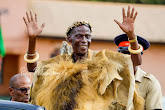On Tuesday, the Energy Regulation Board (ERB) is expected to have their monthly fuel review and adjust the fuel cost for the month of March 2023 based on how the international fuel market has performed in February 2023. Now the ERB will uses two factors in determining the price of this fuel for next month: international price of oil and the exchange rate of Kwacha to Dollar. And they remind us of this every single day across all media platforms.
Global oil markets have continued to be volatile since the beginning of the year – and this volatility has continued into February.
Oil prices rose at the end of January as markets anticipated tighter supply due to China ending its zero-Covid policy and reigniting its economy, along with constraints from sanctions on Russian oil and a concerted move from OPEC+ nations to cut production. This has kept oil prices floating around $87 a barrel.
Industry analysts still anticipate that prices will rise – possibly over $90 or $100 a barrel – in the future but expect it will stay range-bound in the short term. China will make up nearly half of this year's oil demand growth after it relaxed its COVID-19 curbs, the International Energy Agency (IEA) said last week, but restrained OPEC+ production could mean a supply deficit in the second half of the year.
On the other hand, the Kwacha has been taking an unguarded beating from all other major currencies. The Kwacha's weakness against the dollar is keeping pressure on local fuel prices, taking a beating from both global conditions – such as a stronger dollar – as well as local failings, like the ongoing uncertainties with debt restructuring. These uncertainties in turn have stalled the International Monetary Fund (IMF) loan programme worth $1.3 billion, a three-year programme aimed to "restore debt sustainability, create fiscal space for essential social spending and strengthen economic governance”. This has left the country in a limbo on how to rebuild its crisis-hit economy after defaulting on its foreign debts in 2020.
If I had a contact at Community House, I would advise the president (and his mine minister) to urgently sort of the situation on the Copperbelt, Mopani Copper Mines and Konkola Copper Mines should quickly secure new investors. Increasing Zambia's copper production is necessary to reduce the country's debt burden as growth in the mining industry will trigger investment in infrastructure, secure jobs, retrigger the contractors’ economy and ultimately buttress the Kwacha. We will diversify the economy in future, but now we need those two mining giants to roar.
What then should we expect from the next ERB review? Unless government decides to play politics, the prices are expected to remain the same or slightly increase as global crude oil prices have had the same averages in the past 2 months. The oil price for Brent crude oils in February was $87.73 per barrel while the price was $87.5 per barrel in January of 2023. However, looking at how free failing the Kwacha has been against the dollar, even an increase on pump price would never surprise me. The Kwacha ended January at less that K19 per dollar but will most likely end February at more than K20 per dollar.
Add one plus one, dear reader.
As Zambians, we need to be optimistic that things will improve but this improvement should never be contingent on external help only. External supporters are just looking out for their interests. We should never be blind to this reality. During all this, the Bank of Zambia recently raised the MPR by 25 bps to 9.25% in an attempt to rein in inflation, and the process siphoning out liquidity in the market. All this is compounding the cost of doing business in Zambia and with this, the cost of living. Be agile: plan, replan and plan again.
Happy Weekend!!!!



